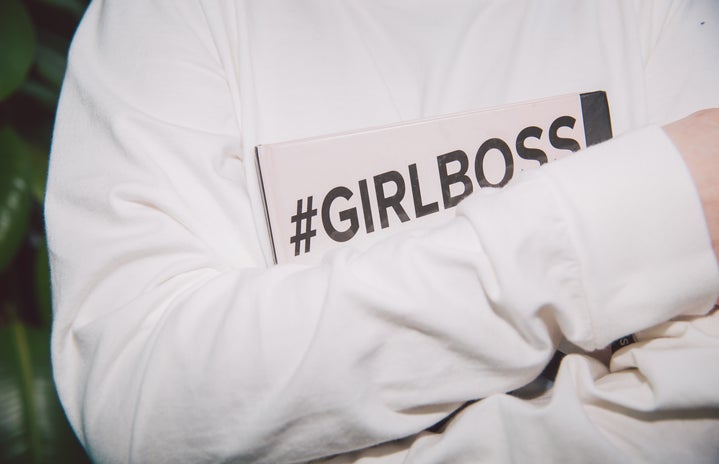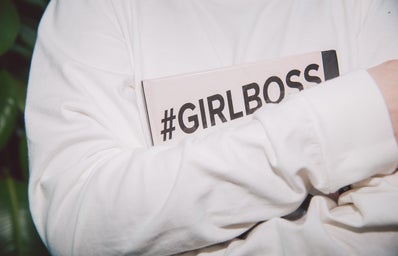In its nearly 62 years of independence, Nigeria has never had a female president. However, there have been many women over the years who have tried and failed to secure enough votes to win the presidential elections. The 2023 presidential elections have seen a rise in the number of female candidates, with Khadijah Okunnu-Lamidi being the first woman to declare interest, as stated by BBC Pidgin.
Nafeesah Ahmed-Adedoja ’23, an international student from the U.K. and Nigeria, shared that she was initially “inspired by her political ambitions and what she seeks to achieve for Nigeria.”
The 38-year-old Nigerian who goes by the nickname “Kol Nigeria” was drawn to the goal of leading Nigeria after the EndSars anti-police brutality protest, according to her interview with BBC News Pidgin, stating, “I tink di time wen I [firmly decided to contest for the presidency was] around [the time of the] EndSars [protest].”
The #EndSars movement, which started in October 2020, was spurred by increasing police brutality in Nigeria. People specifically protested against the actions of the Special Anti-Robbery Squad, a Nigerian task force responsible for violent crimes such as robberies and kidnappings, as stated by the New York Times.
As reported by Amnesty International organization, the culmination of the #EndSars protest was on October 20, 2020, when “12 peaceful protesters were killed and hundreds severely injured when the Nigerian army and police open-fired into a crowd of #EndSARS protesters at Alausa and Lekki Toll Gate Lagos.” This incident has since been dubbed the Lekki Toll Gate massacre.
Being from Lagos State, Okunnu-Lamidi was motivated by this unfortunate event to seek out youths to run for presidency. However, as she detailed in her interview with BBC Pidgin, she tried to approach a lot of young people that she felt would be good candidates, but they either thought it was a trick or believed that they should remain without a leader. “You no fit enta politics without [a] leader. [Instead of trying to convince others, I knew I had to] carry dat risk if I really wan see a beta working Nigeria,” Okunnu-Lamidi said. When she was unable to find any willing prospects, she decided to take matters into her own hands to change her country for the better.
In a country that has never had a female president, for some, the question arises, “Is Nigeria ready for a female president?” A simple Google search reveals several articles with this exact sentence as their titles.
When asked this question, Ella Umoye ’25, a student from Nigeria stated, “To be honest, I feel like that is a stupid argument because we have had male leaders since our independence and even pre-independence. Looking at the state of Nigeria, I do not think anybody has any right to make such a statement anymore because the so-called men who have been ready for decades to run Nigeria have not done any good jobs.” Umoye continued, “That is a petty argument, and I do not buy into that, not just because she is a woman, but because let us be honest, let us be fair. The men that have been in power all this while, have they done anything to change the state of the country? Nothing.”
Umoye added, “You hear of shooters today, tomorrow they are bombing airports and they still do not care, so it is scary because we basically don’t have a government. We just have people who are filling their pockets getting rich on the money of people who can’t even afford things and then have no care whatsoever for the masses.”
Ahmed-Adedoja believes this question stretches beyond the idea of the country being ready and really reveals what is holding the people back. According to her, “Nigeria has not reached the stage where it is ready for a leader that is ready to redirect the nation. What I mean by that is there are many leaders who have had great plans and ambitions. However, it is the fear of change, the fear of having a younger leader, and the fear of being redirected after such a long time that is holding the nation back.”
In line with the issue of Nigerians being held back by fear, Umoye also pointed out another issue that plagues the citizens. Umoye stated, “Now the situation is not that Nigerians would not want to vote for her, it is that Nigerians do not even want to vote at all for anybody. I have had many conversations with other Nigerians, and they do not care anymore about participating in Nigerian politics because at the end of it all you hear that the election was rigged somewhere. Then, the person they voted for and who becomes the leader are different people. ”
Regarding the future of Nigerian leadership, both students expressed similar sentiments for change. Ahmed-Adedoja stated, “I hope that within our generation that we can see that fear be pulled back and people embrace what Nigeria could be and will be with the right leaders and with the right mindset from the people because it is wrong to place all the blame on the leaders of the country.”
Umoye echoed a similar idea, “I think it’s just important going forward, we really need to decide what kind of person we select as leaders. If a lot of these resources were provided such as free access to food, at least for people below a certain income every month, especially during this COVID period, if they were able to give the jobs that they give to people abroad to educated youths in Nigeria, and if they could provide access to basic human necessities, Nigeria will be ten times better than what it is right now. I guess what I’m just hoping for Nigeria is that in the 2023 elections, something actually changes.”
Bola Tinubu, the former Lagos State governor and regarded as one of the richest people in Nigeria, has also thrown his hat in the ring to compete for the presidency, according to Deutsche Welle. Currently, he is viewed as the most-likely-to-win due to his economic status and his seat as the national leader of the All Progressives Congress party, one of the major political parties in Nigeria.
In regards to Tinubu, Okunnu-Lamidi states, “He’s the national leader of the APC; he has contributed to national politics and I have great respect for him. But that doesn’t change the fact that Nigerians are looking for a young person with vibrancy.” The majority of the country’s registered voters fall between the ages of 18 to 35, who according to DW, would prefer a younger candidate.
While Okunnu-Lamidi views her age as advantageous for her campaign, it could also be taken as evidence of her inexperience in the political world. Umoye reiterated this sentiment, stating, “Nigeria is a complex country and unfortunately, it is not just about campaigning. There is a lot of power-play that goes into these things. If you do not really have any political backing or connection in any form, it is going to be really difficult to win.”
Umoye also expresses some concerns about Okunnu-Lamidi’s inexperience. “But as far as her inexperience goes, I feel like I can relate to that because leading a country, especially a country like Nigeria requires a lot. That is what goes into the bad development and bad leadership in Nigeria because a lot of people enter these roles without knowing what it means to truly be a leader, and instead do it for their own personal gains,” she adds.
Ahmed-Adedoja, however, believes that this question about the candidate’s experience highlights the double standards for women in politics. “It’s not surprising. I know that she said in one of her interviews that getting criticism isn’t the end of her political ambition and that she was expecting that. Which great woman hasn’t had that level of criticism before they went on to achieve something phenomenal? Every single leader goes through a phase where there is a lot of uncertainty about their ambitions and qualifications, and as a woman, unfortunately, that has been maximized. But I think that in the long run, it’s just a matter of proving to a greater Nigerian population, her ability, and her goals.”
The presidential aspirant comes from a wealthy family, and, as she wrote in her campaign website, is “proud to hail from a long line of professionals, technocrats, and intelligentsia.” In a country where approximately 40% of its citizens fall below the poverty line, there has been debate on how she would gain this portion of the population’s votes.
In regards to this debate, Umoye responded, “What matters more is how her campaign strategy includes the masses. That is what really matters more than her background. How will she reach out to market women? How will she reach out to students? How will she reach out to the older generation who don’t even want to vote or even have any care about voting anymore in Nigeria?”
Ahmed-Adedoja also echoed the same idea regarding Okunnu-Lamidi’s social class, saying, “I think that she’s well-read enough to know what the people are expecting of her. I don’t think that we always need people from the same background as us to lead us to success or to lead us to greatness. I don’t think that that’s how leadership or how being a successful leader [works]. I think it’s about understanding the needs of the population and the people that you’re serving to the best of your ability and recruiting people from these communities to serve as activists or advocates as you make these decisions.”
Ahmed-Adedoja continued, “You don’t necessarily need to have the same background in order to enact change. It’s all about being a listening voice and hearing the demands of [the] people that you’re serving so that you can make real change in real-time.”
Whether Okunnu-Lamidi wins the election or not, Adedoja believes she will remain a force to be reckoned with in the political world, saying “I think that she’s a great candidate and I think that whether she wins or not, she’s going to be a storm blazer in the coming few years in Nigerian politics.”
If you would like to write for Her Campus Mount Holyoke, or if you have any questions or comments for us, please email hc.mtholyoke@hercampus.com.


